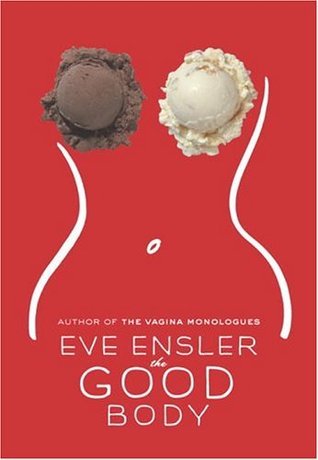
The Good Body
Book Description
What if your body had a voice? In "The Good Body," V uncovers the vibrant tapestry of women's experiences, revealing the struggles, triumphs, and journeys of self-acceptance. From the bold to the tender, each story pulses with raw emotion, challenging societal norms and igniting a powerful conversation about body image and identity. With unflinching honesty, V invites a reckoning with the truth of who we are beneath the skin. This is more than a memoir; it's a call to arms for love, empowerment, and the celebration of every curve and scar. How far would you go to embrace your own good body?
Quick Book Summary
"The Good Body" by V (formerly Eve Ensler) is a bold, resonant exploration of women's relationships with their bodies in a world obsessed with perfection. Through a series of candid monologues and essays, V weaves personal narratives with powerful testimonies from women of diverse backgrounds. Each story examines the burdens, fears, and expectations placed upon women to conform to societal standards of beauty. The book unflinchingly exposes the pain of self-judgment and the yearning for acceptance, while also highlighting moments of rebellion, empowerment, and self-love. "The Good Body" is not just a showcase of struggle, but a rallying cry for empathy, collective strength, and a celebration of bodies in all their beauty and imperfection. V inspires readers to confront internalized shame, challenge external pressures, and ultimately, embrace the radical act of loving the skin they are in.
Summary of Key Ideas
Table of Contents
Societal Pressure and Body Image
V's journey begins with her deeply personal battles around body image, particularly her dissatisfaction with her stomach. She invites the reader into her internal dialogue, exposing the relentless standards women face and how these standards become internalized over time. Through raw confession, she lays bare the origins and impact of her own struggles—serving as an entry point for a wider conversation about women's bodies being sites of cultural commentary, control, and consumption.
Internalized Shame and Self-Critique
By moving beyond her own story, V weaves in powerful monologues inspired by women from across the world. Each account shares a common thread—regardless of geography, age, or circumstance, societal judgments dictate how women perceive and treat their bodies. These diverse voices illuminate a global epidemic of insecurity: from plastic surgery in Los Angeles to traditional ideals in Africa and the Middle East, the yearning for a "good body" is almost universally imposed, and deeply felt.
Global Perspectives on Beauty Standards
The narrative reveals how self-critique becomes a habitual and destructive force in many women’s lives. V exposes how invasive beauty standards generate shame, self-policing, and even resentment towards one's own flesh. The relentless pursuit of thinness, youth, or "perfection" damages self-worth and fosters a disconnection from the body itself. The stories powerfully confront the pain and alienation that result from internalizing these messages, while also questioning who benefits from women’s insecurity.
Empowerment Through Storytelling
Amidst the struggle, V spotlights rebellion, humor, and moments of self-recognition that break the cycle of shame. By sharing and listening to stories, women begin to reclaim agency. The very act of voicing body anxieties—publicly naming them—can become a source of strength and communion. This storytelling acts as a healing force, reminding women they are not alone and that their struggles are woven into the fabric of culture rather than innate failings.
Radical Acceptance and Self-Love
Ultimately, "The Good Body" closes on a note of radical acceptance and love. V calls for a shift from judgment to compassion—for ourselves and each other. The book contends that confronting the truth of our bodies, with all their perceived flaws, can be liberating and transformative. In celebrating the diverse, imperfect beauty of every body, V urges readers to break the shackles of external approval and embrace joyful self-acceptance. This is both an invitation and a manifesto for redefining the "good body" on our own terms.
Download This Summary
Get a free PDF of this summary instantly — no email required.





